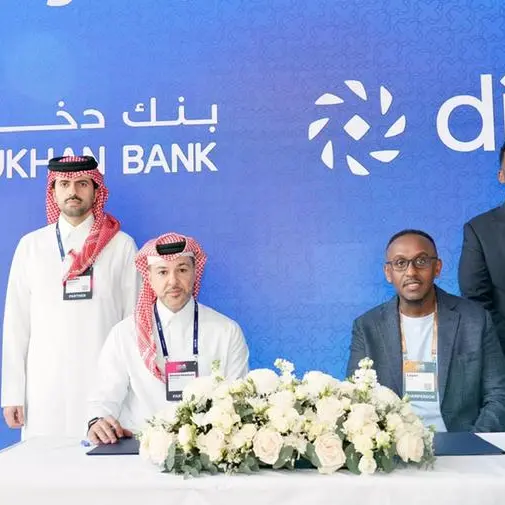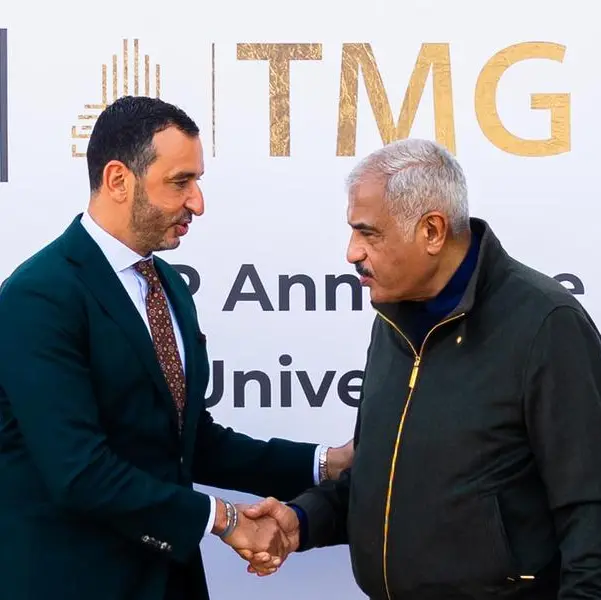- Siemens Mobility to provide 41 Velaro eight car high-speed trains, 94 Desiro high-capacity four car regional train sets and 41 Vectron freight locomotives
- Turnkey contract includes latest rail infrastructure technology, eight depots & yards and 15-year maintenance agreement
- Will create sixth largest high-speed rail system in the world
- To complete all aspects of the project the consortium will create up to 40,000 local jobs
Munich: Siemens Mobility and its consortium partners Orascom Construction and The Arab Contractors have signed a contract with the Egyptian National Authority for Tunnels (NAT), a governmental authority under the jurisdiction of the Ministry of Transport of Egypt, to create the sixth largest high-speed rail system in the world. The Siemens Mobility share of the combined contract is 8.1 billion EUR and includes the initial contract of 2.7 billion EUR for the first line signed September 1, 2021.
The contract was signed by Kamel Al Wazir, Minister of Transport Egypt, and Roland Busch, President and Chief Executive Officer (CEO) of Siemens AG, as well as Osama Bishai, CEO Orascom Construction and Sayed Farouk, President and CEO Arab Contractors. This was witnessed by Egyptian President Abdel Fattah El-Sisi, Prime Minister Mostafa Madbouly, Chairman of Egypt’s National Authority for Tunnels Essam Waly, German Ambassador Frank Hartmann, as well as Siemens Mobility CEO Michael Peter. German Chancellor Olaf Scholz sent a video message, underlining Germany’s support for the project and its importance for German-Egyptian bilateral relations and global climate protection.
The 2,000-kilometer state-of-the-art high-speed rail network will connect 60 cities throughout the country, with trains that can operate at up to 230 km/h. This means that approximately 90 percent of Egyptians will have access to this modern, safe, and integrated rail system. With a modal shift to train transport, the fully electrified network will cut carbon emissions by 70 percent compared to current car or bus transport, further supporting Egypt’s efforts in transforming its mobility to a more sustainable one. Together with civil works partners Orascom Construction and The Arab Contractors, Siemens Mobility will provide its comprehensive turnkey services to design, install, commission, and maintain the entire system for 15 years.
For his part, His Excellency, Egyptian President Abdel Fattah El-Sisi said that the new electrified trains network comes as a consolidation of the fruitful cooperation between Egypt and Germany in the field of infrastructure, and will represent a valuable great addition to Egypt’s transportation system, marking the beginning of a new era for the railway system in Egypt, Africa, and the Middle East.
“The opportunity to provide Egypt with a modern, safe, and affordable transportation system that will transform the everyday for millions of Egyptians, create thousands of local jobs and reduces CO2 emissions in transport, is an honor for us. Not only will it promote economic growth, it will also enable Egypt to take a leap forward in rail transportation. With our latest technology in rolling stock, signaling, and maintenance services, Egypt will have the sixth largest and most modern high-speed rail network in the world,” said Roland Busch. “In addition, it is the biggest order in the history of Siemens!”
“This landmark transportation project is truly historic for both Egypt and Siemens and we are honored to partner with the Ministry of Transport to reimagine the future of transportation in Egypt. The extensive 2,000 km high-speed rail network will connect 60 cities and enable around 500 million journeys a year. It will link the country like never before, fight pollution and global warming, while also providing an effective and reliable method for the movement of goods,” said Michael Peter. “Together with our partners, we will develop from scratch a complete and state of the art rail network that will offer a blueprint for the region on how to install an integrated, sustainable, and modern transportation system.”
The Egyptian high-speed network will consist of three lines: The already announced “Suez Canal on rails,” a 660-kilometer line connecting the port cities of Ain Sokhna on the Red Sea to Marsa Matrouh and Alexandria on the Mediterranean. And the two rail lines signed today. The second line will be about 1,100 kilometers and run between Cairo and Abu Simbel near the Sudan border, linking the mega city to rising economic centers in the south. Furthermore, it will allow for the development of communities up and down the Nile, which will subsequently provide additional opportunities for small and family-owned businesses to flourish. The third line will cover 225 kilometers. This line will connect the world heritage archeological sites in Luxor with Hurghada by the Red Sea. In addition, this rail link will significantly improve the efficiency and sustainability of freight transport for goods and materials between Safaga harbor and inland locations.
To support the installation of the rail network, the consortium will directly create up to 40 thousand jobs in Egypt, with an additional 6,700 at Egyptian suppliers and indirectly through the wider Egyptian economy.
To equip the entire rail network, Siemens Mobility will deliver trains based on its proven product platforms. This includes 41 Velaro eight car high-speed trains, 94 Desiro high-capacity four car regional train sets, and 41 Vectron freight locomotives. On all three lines, Siemens Mobility will install a safe and reliable signaling system based on the European Train Control System (ETCS) Level 2 technology, as well as the power supply system that will deliver efficient and continuous energy.
Siemens Mobility will provide its latest digital products and platforms that will optimize operations throughout the network for the trains, rail infrastructure and subsystems. The digital application Railigent will be used to provide comprehensive asset management and maintenance to guarantee the highest availability. Digitalized depots will enable seamless processes from problem identification to correction. Automated Ticketing, Digital Station and Power Management solutions will help to meet the challenges surrounding capacity and efficiency in stations.
-Ends-
Follow us on Twitter at: www.twitter.com/siemens_press and www.twitter.com/SiemensMobility
About Siemens Mobility
Siemens Mobility is a separately managed company of Siemens AG. As a leader in transport solutions for more than 160 years, Siemens Mobility is constantly innovating its portfolio in its core areas of rolling stock, rail automation and electrification, turnkey systems as well as related services. With digitalization, Siemens Mobility is enabling mobility operators worldwide to make infrastructure intelligent, increase value sustainably over the entire lifecycle, enhance passenger experience and guarantee availability. In fiscal year 2021, which ended on September 30, 2021, Siemens Mobility posted revenue of €9.2 billion and had around 39,500 employees worldwide. Further information is available at: www.siemens.com/mobility.
About Siemens AG
Siemens AG (Berlin and Munich) is a technology company focused on industry, infrastructure, transport, and healthcare. From more resource-efficient factories, resilient supply chains, and smarter buildings and grids, to cleaner and more comfortable transportation as well as advanced healthcare, the company creates technology with purpose adding real value for customers. By combining the real and the digital worlds, Siemens empowers its customers to transform their industries and markets, helping them to transform the everyday for billions of people. Siemens also owns a majority stake in the publicly listed company Siemens Healthineers, a globally leading medical technology provider shaping the future of healthcare. In addition, Siemens holds a minority stake in Siemens Energy, a global leader in the transmission and generation of electrical power.
In fiscal 2021, which ended on September 30, 2021, the Siemens Group generated revenue of €62.3 billion and net income of €6.7 billion. As of September 30, 2021, the company had around 303,000 employees worldwide. Further information is available on the Internet at www.siemens.com.
Forward looking statement
This document contains statements related to our future business and financial performance and future events or developments involving Siemens that may constitute forward-looking statements. These statements may be identified by words such as “expect,” “look forward to,” “anticipate,” “intend,” “plan,” “believe,” “seek,” “estimate,” “will,” “project” or words of similar meaning. We may also make forward-looking statements in other reports, in prospectuses, in presentations, in material delivered to shareholders and in press releases. In addition, our representatives may from time to time make oral forward-looking statements. Such statements are based on the current expectations and certain assumptions of Siemens’ management, of which many are beyond Siemens’ control. These are subject to a number of risks, uncertainties and factors, including, but not limited to those described in disclosures, in particular in the chapter Report on expected developments and associated material opportunities and risks in the Combined Management Report of the Siemens Report (siemens.com/siemensreport), and in the Interim Group Management Report of the Half-year Financial Report (provided that it is already available for the current reporting year), which should be read in conjunction with the Combined Management Report. Should one or more of these risks or uncertainties materialize, should decisions, assessments or requirements of regulatory authorities deviate from our expectations, should events of force majeure, such as pandemics, unrest or acts of war, occur or should underlying expectations including future events occur at a later date or not at all or assumptions prove incorrect, actual results, performance or achievements of Siemens may (negatively or positively) vary materially from those described explicitly or implicitly in the relevant forward-looking statement. Siemens neither intends, nor assumes any obligation, to update or revise these forward-looking statements in light of developments which differ from those anticipated.
This document includes – in the applicable financial reporting framework not clearly defined – supplemental financial measures that are or may be alternative performance measures (non-GAAP-measures). These supplemental financial measures should not be viewed in isolation or as alternatives to measures of Siemens’ net assets and financial positions or results of operations as presented in accordance with the applicable financial reporting framework in its Consolidated Financial Statements. Other companies that report or describe similarly titled alternative performance measures may calculate them differently.
Due to rounding, numbers presented throughout this and other documents may not add up precisely to the totals provided and percentages may not precisely reflect the absolute figures.
Siemens AG
Communications
Head: Lynette Jackson
Werner-von-Siemens-Strasse
180333 Munich, Germany



















